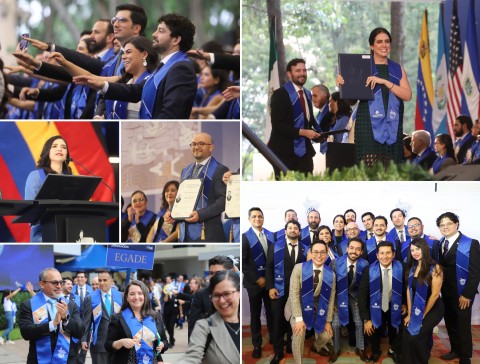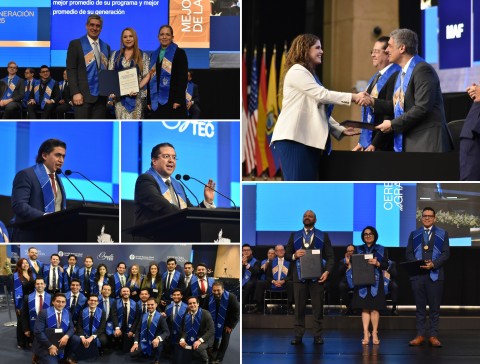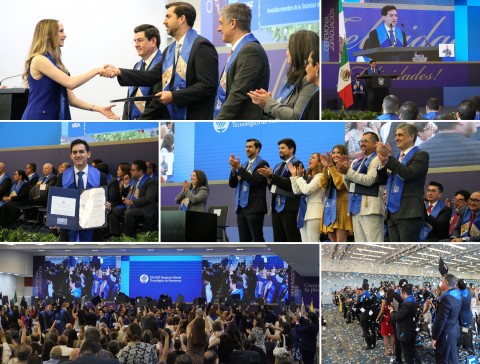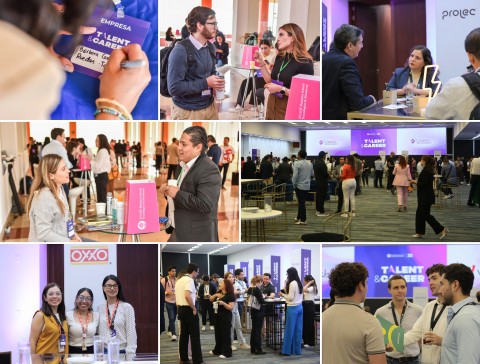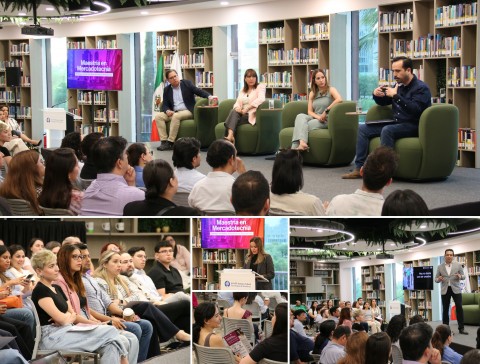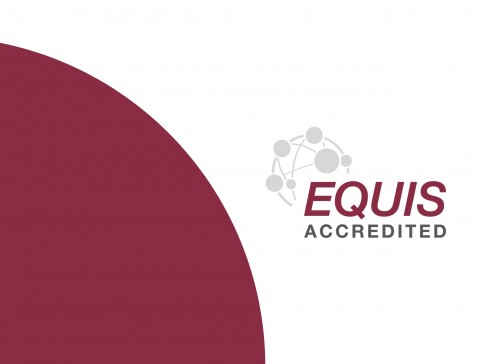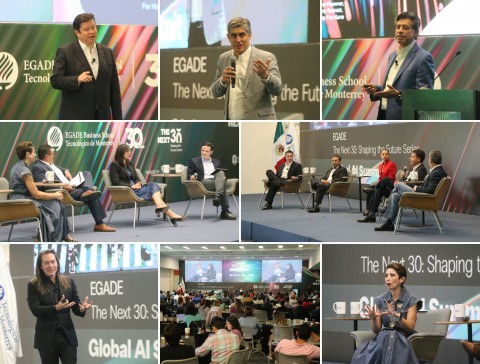Three pieces of advice from the CEO of Heineken México to EGADE graduates
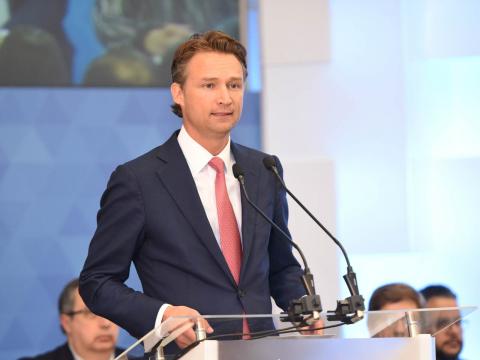
Dolf van den Brink, Presidentand CEO of Heineken México, was invited to speak at the EGADE Business School Monterrey June 2018 Graduation Ceremony, where he shared three pieces of advice with the graduating students.
The Dutch-born executive highlighted lessons he had learned from his father and as Commercial Director of Bralima, Heineken’s subsidiary in the Democratic Republic of the Congo, the position he held prior to being appointed President and CEO of Heineken USA, and taking on his current role in Mexico.
“I would like to share three pieces of advice with you, drawn from difficult lessons I have learned, and that can help you at this important moment in your lives,” he stated.
Advice #1: “Go to difficult places”
“(Accepting the position in the Congo) has been the most difficult decision of my life so far, but it also turned out to be one of the best. At a very young age, in my early thirties, I took on responsibilities and opportunities that I would never have had in more developed markets. It was a challenge like no other. Living and working in a totally different culture truly shifts all your paradigms and changes your mentality. I am here today because of what I learned in the Congo, a difficult place.
“You are about to make momentous decisions about your career and can have a similar experience when someone gives you the chance to go to a difficult place or take a position that, on the surface, might not seem particularly attractive. What are you going to do? Reject it and choose the easy path? Or are you going to seize the opportunity to face up to many challenges that might be somewhat painful, but that could also be unique learning experiences?
“My advice is not to look for the perfect job but to go for the role that will give you the greatest chance to learn. Have faith in life and the opportunities it gives you,” he said.
Advice #2: "If you want to receive, first give”
Van den Brink mentioned that this is the advice given to him by his mentor on arriving at the African subsidiary.
“When they invite you to be a group leader, many people focus on performance, strategy, vision. Or, even worse, some people think it’s about being in charge and giving orders. In reality, being a leader is, more than anything, about looking out for your people. Helping and supporting them. And when you put your heart into this, they will give that and more back to you. I learned this in the Congo.
“During my first few months there, I focused on the business and how poorly it was performing. The company was losing participation and money, and had been doing so for some time. However hard I tried to change things, nothing improved. But when I saw the people’s needs, the obstacles they faced, that was when the business began to change.
“For example, when I arrived there was so little money that practically none of the salesforce had vehicles to visit customers. They spent their own money on transportation and it took them ages to get anywhere. Without knowing how I would do it, I made a promise to them, that I wouldn’t rest until each of them had a small car or at least a motorcycle. It took me more than a year and a half, but I kept my promise. The team’s response was fantastic. Of course, it wasn’t just about a car, but also trust. In the end, our operation became one of the fastest growing in the company worldwide.
“Each of you has received a world-class education, many of you will lead teams at some point in your lives, so take the advice given to me by my mentor: if you want to receive, first give. Take care of your people, safeguard their wellbeing, support them and help them to grow. That’s how you will achieve great results,” he commented.
Advice #3: “Make this world a little bit better”
Van den Brink related that some years ago, his father became ill and died within three months from a brain tumor. It was the saddest period of his life, but, at the same time, he forged a special relationship with this father and they talked about important things they had never discussed before.
“I asked him: ‘Dad, what was your purpose in life?’ I thought he would laugh at me because it wasn’t the kind of topic he talked about. However, he looked at me very seriously and said: ‘I came here to make this world a little bit better.’
“I often saw how he used his position of privilege to make a difference. And not only in big ways, but also in little gestures, in meaningful ways. More than a thousand people attended his funeral, mostly young students and colleagues whom he had helped in hard times, people from the charities in which he participated. Even though he was leaving this world, he taught me a very important lesson in the last moments we spent together.
“I know that the question about the purpose in life is huge and intimidating. Should you worry about it now that you are so young and just starting out in your careers? When I started working, I did focus on performing well and being successful, and I’m sure that’s what you have in mind, but if you don’t take care of yourselves, you will be stuck in this stage of your lives forever.
“This is what my father taught me. He forced me to ask myself what is the greater good than the one I am serving, until I am serving beyond myself. We are all born with unlimited potential. But serving only yourself, accomplishing only success, won’t let you reach your full potential of the person you could be.
“Put into practice everything you have learned here at EGADE. This is an incredible place that has given you so much. Go out into the world, go to those difficult places that will teach you so much. Remember that if you want to receive, you must first give. And don’t forget that in the middle of all this success, you must try to find a way to make this world a little bit better,” concluded Van den Brink.
